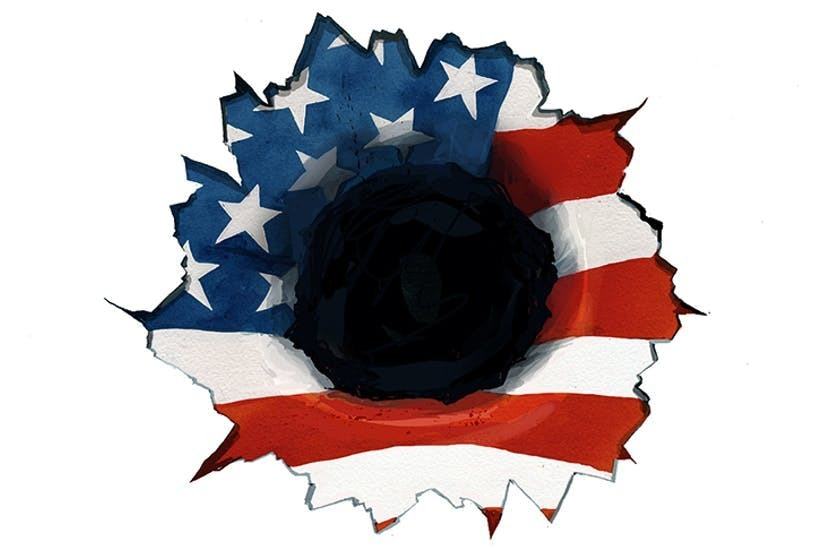I just wonder how many more school massacres it will take before four words, which I am sure are already being muttered beneath the breath of millions of Americans, break out into mainstream opinion: Sod the Second Amendment.
It is all very easy to scoff at Americans for their love of guns and the obvious evidence that it is contributing to a murder rate that is vastly higher than in any Western European country. But US gun control is part of a wider fault in the practice of government, and one which is being committed increasingly by all developed countries – the fetish for tying the hands of future legislators with over-prescriptive charters.
Donald Trump today has ignored questions on gun controls. Barack Obama on these occasions always used to express some desire to place greater controls on guns, but the end result was the same: very little happened. Whatever a president might think, if he attempts any meaningful reform of gun laws he faces a huge obstacle in the shape of the US constitution. Even if a president could convince senators and congressmen of the need for serious control of guns, any attempt to do this is going to end up in the courts where – unless judges come up with an especially imaginative way of reading the second amendment – such measures are more or less bound to fail. The right of citizens to bear arms is pretty much written in stone. It might not be absolute, but it is never going to allow British-style gun laws to be adopted in the US.
Those who drafted the constitution couldn’t have foreseen, of course, the phenomenon of high school massacres. They couldn’t have imagined the development of automatic and semi-automatic weapons, nor the increase in firepower. From their vantage point a right to bear arms made sense, because, in a frontier society, it empowered communities to protect themselves. They can’t be blamed for failing to see that the US would one day be a consumer society, at which point the second amendment would become an invitation for murder.
There is a lesson here for us in Britain, Europe and every other country: don’t write yourselves a constitution or a charter that is too detailed. But we do. We can’t stop ourselves. In fact, in Europe we are far worse at doing this. Year by year we pile more and more protocols onto our human rights conventions and charters of fundamental rights, on anything from diversity, working conditions, privacy and so on. This isn’t a hidden argument for Brexit, by the way – not given that many Brexiteers want to repeat the error by replacing European charters with a British Bill of Rights. In 200 years’ time they will all look every bit as quaint as the second amendment. Hopefully they will not be so lethal.
We love to praise the Magna Carta, but that is because we tend not to read it. If we did, we would realise it suffers from exactly the same problem as the US constitution – its provisions on fish weirs and not trusting the word of a woman, which no doubt seemed enlightened at the time, demonstrate the folly of trying to enshrine high principles that will stand forever after.
We like to think that such principles will defend us against dictators or even just over-bearing governments. But for that purpose it would be far better that we stuck to a plain and simple constitution which demands a high input of democratic will and ensures that no one person has too much power. And one which forbids anyone ever adding any kind of amendment.


















